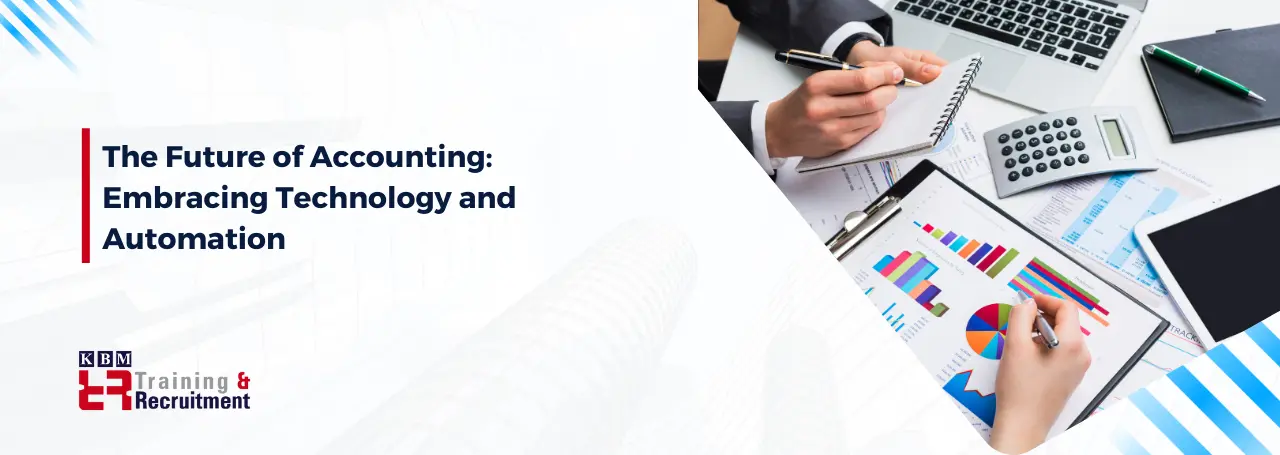In business, accounting stands as the bedrock of financial management. Traditionally, it's been a field characterised by meticulous manual work, number crunching, and ledger entries.
However, the accounting landscape is rapidly transforming as we stride into the digital age. The rise of technology and automation is revolutionising how accountants operate, offering unprecedented opportunities to streamline processes, enhance accuracy, and deliver more excellent value to businesses.
In this blog, we'll explore the future of accounting, delving into the role of technology and automation, their benefits, and their implications for professionals in the field.
The Evolution of Accounting Technology
The introduction of computers in the latter part of the 20th century brought about a notable transformation, allowing accountants to automate specific tasks and manage larger datasets more efficiently.
Nevertheless, recent progressions in technologies like artificial intelligence (AI), machine learning, and cloud computing are fundamentally altering the accounting landscape.
Automation: A Game-Changer for Accountants
Automation stands as the paramount force reshaping modern accounting. Previously, tasks like data entry, invoice processing, and reconciliation necessitated extensive manual effort, but now, specialised software and AI algorithms can automate these processes.
This liberation allows accountants to concentrate on strategic endeavours while reducing the likelihood of human error, enhancing the precision of financial reporting. Moreover, automation extends beyond mundane tasks to complex financial analysis, forecasting, and risk assessment processes.
By leveraging advanced analytics and predictive modelling, accountants can gain deeper insights into financial trends, identify potential risks or opportunities, and make data-driven recommendations to steer their organisations toward success.
Embracing Technology for Greater Efficiency
Cloud computing has become a cornerstone of contemporary accounting infrastructure, providing access to financial data and software applications anytime, anywhere.
Cloud-based accounting platforms streamline collaboration, helping multiple users work on the same dataset simultaneously, irrespective of their location. This fosters teamwork within accounting departments and promotes improved communication and integration with other organisational functions.
In addition, implementing application programming interfaces (APIs) allows for smooth communication and data exchange between different software systems. As a result, accounting software can be linked with other business applications.
These solutions include customer relationship management (CRM) and enterprise resource planning (ERP) systems. This integration creates a cohesive environment where data seamlessly flows across various functions, breaking down silos and reducing redundancy.
The Role of Accountants in a Tech-Driven World
As technology continues to evolve in the accounting profession, accountants' roles are growing. Rather than being mere number crunchers, accountants are increasingly becoming strategic advisors, leveraging their analytical skills and domain expertise to provide insights that drive business growth and sustainability.
This shift from transactional to advisory roles requires accountants to upskill and embrace new technologies. For example, proficiency in data analytics, data visualisation, and programming languages like Python or R is becoming more valuable for accountants.
These skills empower them to leverage big data and advanced analytics tools to derive actionable insights from intricate datasets, assisting organisations in making informed, real-time decisions.
Moreover, as stewards of financial integrity, accountants play a necessary role in ensuring the ethical use of technology and data within their organisations. They must be vigilant against potential risks such as data breaches, cyber-attacks, or algorithmic biases arising from adopting new technologies and implement robust controls and safeguards to mitigate them.
Conclusion
The future of accounting is with technology and automation. By embracing these advancements, accountants can unlock new levels of efficiency, accuracy, and strategic insight, enabling them to add more excellent value to their organisations.
However, this transformation also requires a mindset shift as accountants transition from traditional roles to becoming forward-thinking advisors and innovation champions. As we venture into this tech-driven era, one thing is sure: the future of accounting is bright, powered by the synergy of human expertise and technological innovation.






















